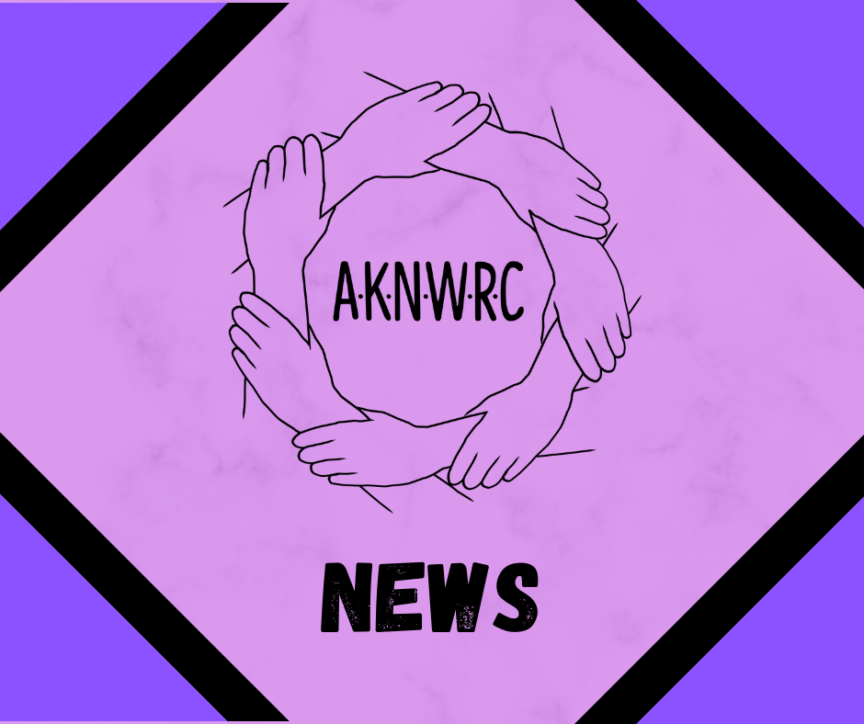FOR IMMEDIATE RELEASE
February 11, 2022
Press Contact: Candy Keown Tel. (907) 378‑3339
candy.keown@aknwrc.org www.aknwrc.org
Senate Introduces the Violence Against Women Reauthorization Act of 2022 with a Significant Alaska Native Section.
The Alaska Native Women’s Resource Center (AKNWRC) is excited to announce the Senate has introduced the Violence Against Women Reautorization Act of 2022. Senator Lisa Murkowski, along with three other colleagues were the lead sponsors of the bill, which contains important enhancements for American Indian and Alaska Native tribes to combat the disproportionate violence that these communities continue to experience.
“Our tribal title closes loopholes, builds upon the success of the 2013 reauthorization, and includes specific solutions to protect Alaska Native people. The tribal title will further restore, and improve, the implementation of the special tribal criminal jurisdiction over non-Indians who commit violent crimes in Native communities. And it would do so by allowing Tribes who exercise this special jurisdiction to charge defendants with crimes that co-occur with domestic violence, such as violence against children or assault on law enforcement,” said Senator Murkowski. “The tribal title includes an Alaska pilot program which builds on previous legislation I have introduced and will empower a limited number of Alaska Tribes to exercise special criminal jurisdiction over certain crimes that occur in villages in Alaska.”
“We are encouraged that the Senate is considering legislation that recognizes that restoring safety for Alaska Native women requires empowering Alaska Native tribal governments,” stated Tami Truett Jerue, Executive Director of AKNWRC. “This is consistent with recommendations that have been made for decades to remove barriers in federal law that limit the authority of tribal justice systems to address violence in tribal communities.”
Alaska tribes are treated differently than other American Indian tribes under United States law largely because of the timing of Alaska statehood, Public Law 280 and the unique structure of the Alaska Native Claims Settlement Act. While Alaska Tribes are included in the VAWA Tribal specific title, there are a few resources that the majority of Alaska tribes lack and thus may not see the full benefit of the proposed law. For example in several sections, “tribal law enforcement” is the avenue in which provisions can be accessed. Because few tribes in Alaska have law enforcement, more than 200 tribes could be left out of specific provisions and envisioned protections.
Other provisions build upon the reauthorization of VAWA in 2013, including:
- Reaffirming Tribal Nations’ jurisdiction to prosecute non-Indian perpetrators of child violence, sexual violence, sex trafficking, stalking, crimes against tribal law enforcement and correctional officers, and obstruction of justice;
- Clarifying that all Tribal Nations in Maine can exercise tribal jurisdiction under VAWA;
- Ensuring that non-Indian defendants must exhaust all Tribal court remedies before appealing to federal court;
- Reauthorizing funding for and amending the Tribal Access Program, to ensure that all Tribal Nations can access national crime information systems for criminal justice and non-criminal justice purposes;
- Making the 2010 Bureau of Prisons Tribal Prisoner Program permanent and allowing Tribal Nations to place offenders in federal facilities that are sentenced to one year or more; and
- Significantly increasing resources for Tribal Nations to exercise Special Tribal Criminal Jurisdiction and establishing a reimbursement program to cover Tribal costs.
The House Passed the reauthorization of VAWA in March 2021, which included Alaska specific provisions as well. House Representative Don Young championed these provisions with his vote. Senator Dan Sullivan has yet to weigh in on whether he will support the Senate bill.
About the Alaska Native Women’s Resource Center:
Organized in 2015, the Alaska Native Women’s Resource Center is a tribal nonprofit organization dedicated to ending violence against women with Alaska’s 229 tribes and allied organizations. AKNWRC board members are Alaska Native women raised in Alaska Native Villages and have 153 years of combined experience in tribal governments, nonprofit management, domestic violence, and sexual assault advocacy (both individual crisis and systems and grassroots social change advocacy at the local, statewide, regional, national and international levels), and other social service experience. AKNWRC’s philosophy is that violence against women is rooted in the colonization of indigenous nations.

